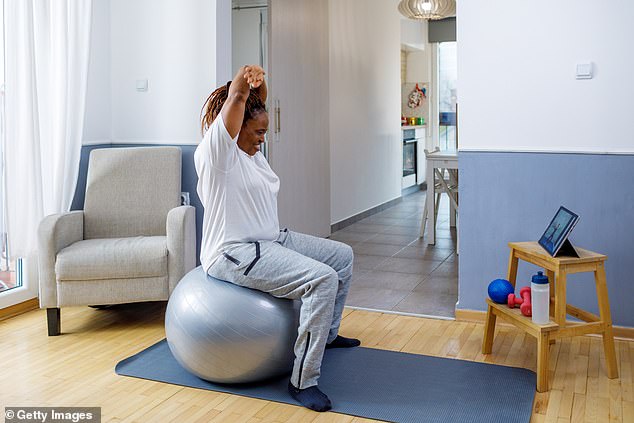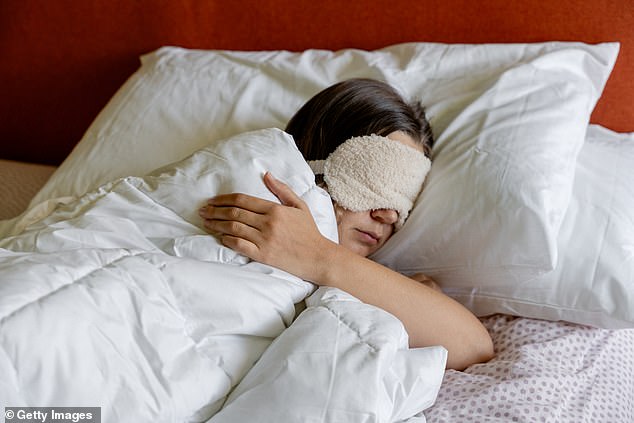How Three-Minute Exercises a Few Hours Before Bed Can Improve the Quality of Your Sleep
When you’re hoping to get a good night’s sleep, exercise may be the last thing on your mind.
Research shows that exercising in the hours before bed can help you sleep better.
Researchers found that short strength training sessions, such as chair squats and calf exercises, every half hour before bed increased sleep duration by 27 minutes.
It is currently recommended not to exercise intensively before going to bed, as this increases body temperature and heart rate.
But the findings suggest it might not be so bad. Researchers from the University of Otago in New Zealand recruited 30 participants aged 18 to 40 for their study.
Researchers found that short strength training sessions every half hour before bedtime increased sleep duration by 27 minutes (file image)

Current recommendations advise against intense exercise before bedtime, as this increases body temperature and heart rate (file image)

The findings appear to show that evening exercise does not disrupt sleep quality, despite current sleep advice to the contrary (file image)
They all reported that they spent more than five hours sedentary time during the day at work and two hours in the evening.
Each participant completed two sessions in a laboratory, which began around 5:00 PM.
In one session they sat for four hours, while in the other session they did three minutes of simple resistance exercises every 30 minutes for four hours.
Each break consisted of three rounds of exercises: chair squats, calf raises, and standing knee raises with extended hip extensions, each for 20 seconds.
Before the experiment, the participants slept an average of seven hours and 47 minutes.
However, analysis showed that after the activity breaks, they slept an average of 27 minutes longer than during the other session.
There were also no significant differences in sleep efficiency – meaning the participants no longer woke up during the night after completing the exercise.
Although breaks from activities can improve metabolism after a meal, it has not been clear whether they also affect sleep.
Poor sleep is associated with an increased risk of cardiometabolic diseases, such as coronary heart disease.
The team wrote in the journal BMJ Open Sport & Exercise Medicine: ‘These results add to a growing body of evidence that evening exercise does not disrupt sleep quality, despite current sleep advice to the contrary.’
